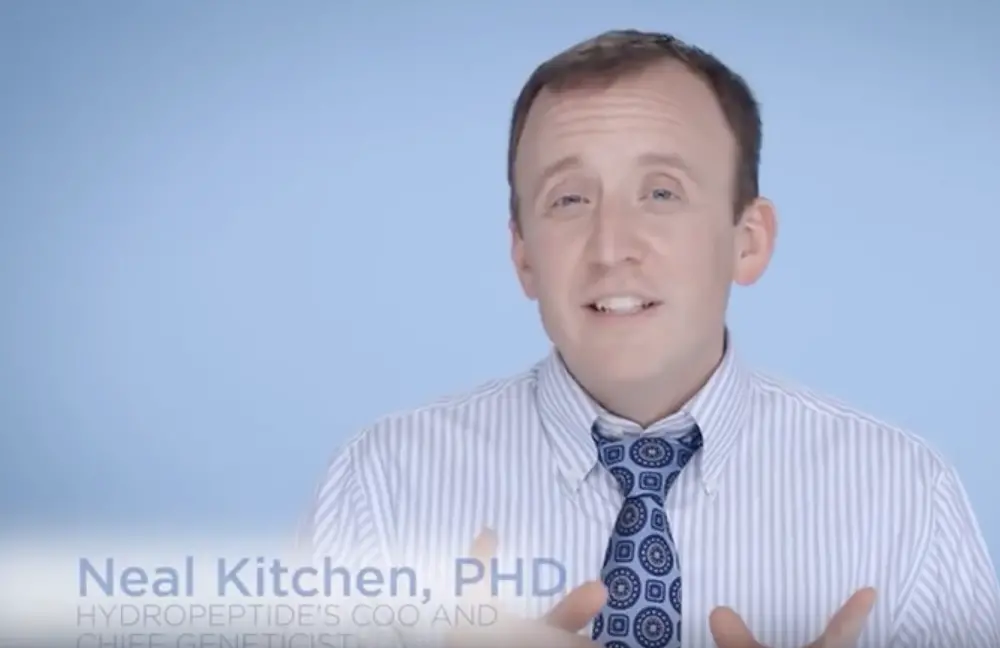
When Neal Kitchen joined the department of cell and developmental biology in 2002, his plan was to get a PhD and then find a job with a company that would pay for an MBA program. But just as he neared graduation, the financial crisis of 2007-2008 took the wind out of the job market.
“There were a lot of companies that simply weren’t hiring much,” he said, “so I started looking again at other potential options for doing postdoctoral research on Type-1 diabetes.”
Type-1 diabetes was Neal’s initial impetus for pursuing biology. After a good friend developed Type-1 at an early age, Neal became interested in understanding the pathology of this disease though his graduate work ended up taking a different path.
With few industry prospects in a tepid economy, Neal started looking for postdoc opportunities and found an interesting research opportunity at Pfizer working with an eminent immunologist out of University of California San Francisco, Jeff Bluestone.
“I was to be on Pfizer’s industry- based team and collaborate with Bluestone’s lab to do some research on Type 1 diabetes, looking at how epigenetic markers are impacting the autoimmune response,” he said. It was also an attractive option because it would be located near his parents where he grew up in St. Louis.
After an interview and positive feedback about his candidacy, the project with Bluestone’s lab was delayed. At the time, Pfizer had just merged with another pharmaceutical giant, Wyeth, and the company decided to see how the merger would play out with the plan that Neal would start at the beginning of the next year.
As it turned out, the Pfizer facility in St. Louis closed and the postdoctoral option fell through.
Neal said he was treading water, but remained positive and started going to job fairs where he met representatives from several companies that were beginning to hire again. There he learned of several R&D positions but eventually chose to take a job with Thermo Fisher Scientific in a technical support role.
“Technical support was actually a really ideal position for me...” he said, “... the way that they had it set up allowed you to learn about a lot of different departments within the industry setting, and that was really valuable for me to quickly understand what does marketing do, what does quality control do, what the R&D scientists were doing -- and I really got exposed to all of those.”
The technical support role launched other opportunities, and within a year Neal became a product manager over the immunology division. He was also able to realize another goal when Thermo Fisher paid for an MBA program at Rockford University.
Neal said the success and opportunities available at Thermo Fisher were exciting, but then another opportunity popped up. His sister, Annette Rubin, had founded a company called Belli SkinCare, creating non-toxic cosmetics for pregnant women. The company was quite successful and she sold it in 2011. She then took on a new opportunity as a managing partner for Hydropeptide LLC, an anti- aging skin care company.
Neal remembers when he first heard of this new company. “I said ‘Hydro WHAT’ and she said ‘peptide’ and I kind of teasingly asked her, ‘What did you think a peptide was,’ and she didn’t know exactly what my research had been,” he said. “I spent the last good portion of my adult life studying signaling and peptides and how other proteins signal to the cell, and of course when she found that out she got excited to know that I had some relevance within her space.”
One thing led to another, and Neal ended up taking an advisory role with Hydropeptide while still at Thermo Fisher Scientific. “It was both busy and fun enough that [my sister and I] started conversing about what kept holding me back from coming out there full time. That was probably one of the biggest decisions I’ve made,” he said.
Neal took the opportunity to move to Seattle in 2014 and work with his sister even though it was a little more risky than staying at Thermo Fisher. His first official title was Vice President of Strategy Development, a role with the R&D side. He is now the Chief Operating Officer.
Though his new position does not necessarily coincide with his PhD research, he does feel like he has the opportunity to use his foundation in science and epigenetics with the complementing degree in business to bring research to the forefront of the skin care industry both from the marketing perspective and the technology perspective.
“I get to wear a lot of hats,” said Neal, “but I think the part that’s been the most fulfilling is the opportunity to go out and talk to people about skincare and what we can do to impact our skin in a real way. Everyone tends to think of fine line wrinkles, age spots, dull skin, and I talk to them about the fact that the changes we see are on the cellular level.”
Of his experience in the department of cell and developmental biology, then called cell and structural biology, Neal says, it was a great program, “one where I felt in every moment that I had the opportunity to continue to grow,” he says.
His message to current students: “The academia route is such a powerful one, and it certainly is applicable for a lot of graduate students, but it’s not the only career path.”
One of the things Neal has loved about his unique career path is that he has taken on what would not be considered traditional roles for a PhD.
Twelve years ago, Kitchen did not foresee himself saying, “‘Hey I’m going to be in the beauty industry someday...’ that would’ve been a little bit laughable in that sense, yet I feel very much like I’m fulfilling a lot of the things that made me passionate about science in the beginning. I get to be part of that in industry today.”